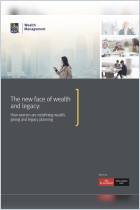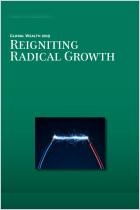Acesse a sua conta getAbstract para obter o resumo!

Acesse a sua conta getAbstract para obter o resumo!
Anna Zakrzewski, Kedra Newsom, Michael Kahlich, Maximilian Klein, Andrea Mattar and Stephan Knobel
Managing the Next Decade of Women’s Wealth
Boston Consulting Group, 2020
Sobre o que é?
Wealth managers must address unconscious biases and deal with all clients as individuals.
Recommendation
Women often find that wealth managers talk down to them and assume they don’t care about investing details or didn’t earn their own money. Wealth management industry attitudes are not keeping pace with women’s ascendance in wealth acquisition, according to this study by the Boston Consulting Group, which details how women must battle wealth managers’ sexist attitudes and stereotypes. Anna Zakrzewski, Kedra Newsom, Michael Kahlich, Maximilian Klein, Andrea Real Mattar and Stephan Knobel detail the necessary changes wealth managers must embrace to serve women today and in the decade to come.
Summary
About the Authors
Anna Zakrzewski, in Zurich, and Kedra Newsom, in Chicago, are managing directors and partners in the Boston Consulting Group. Michael Kahlich, Maximilian Klein, and Andrea Real Mattar work in the BCG’s Zurich office and Stephan Knobel is a BCG Lead Analyst in Frankfurt.






















Comment on this summary